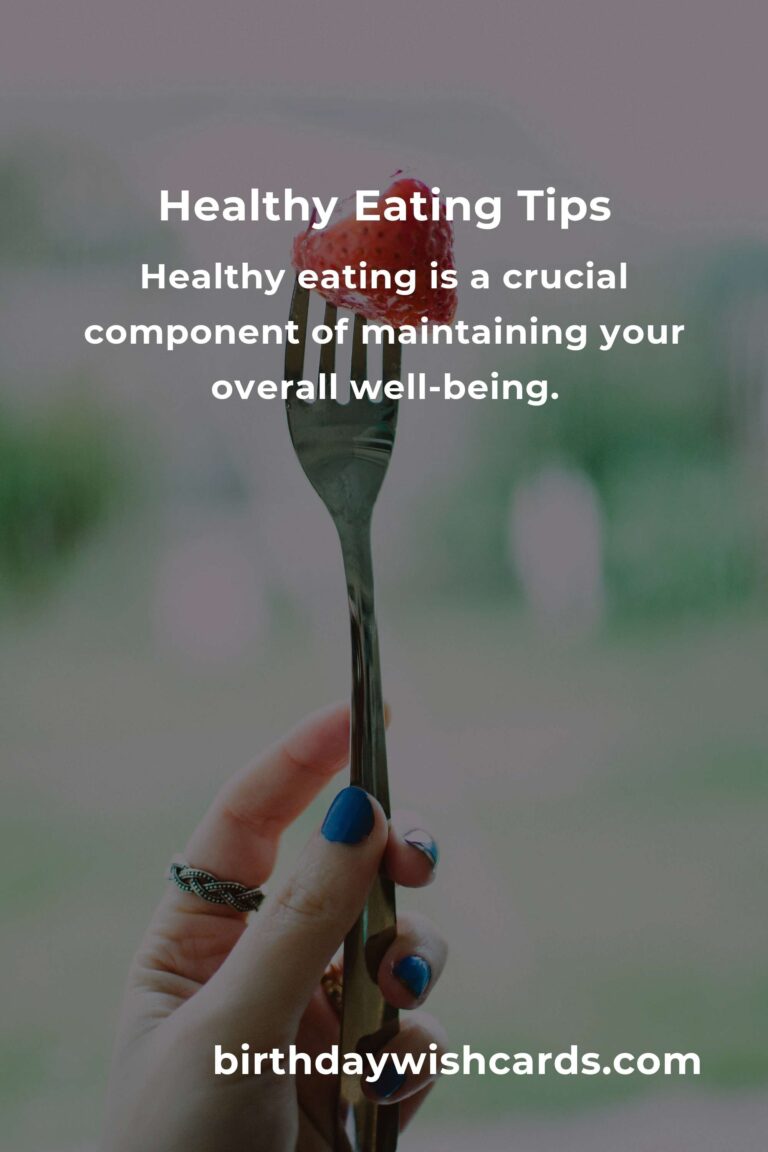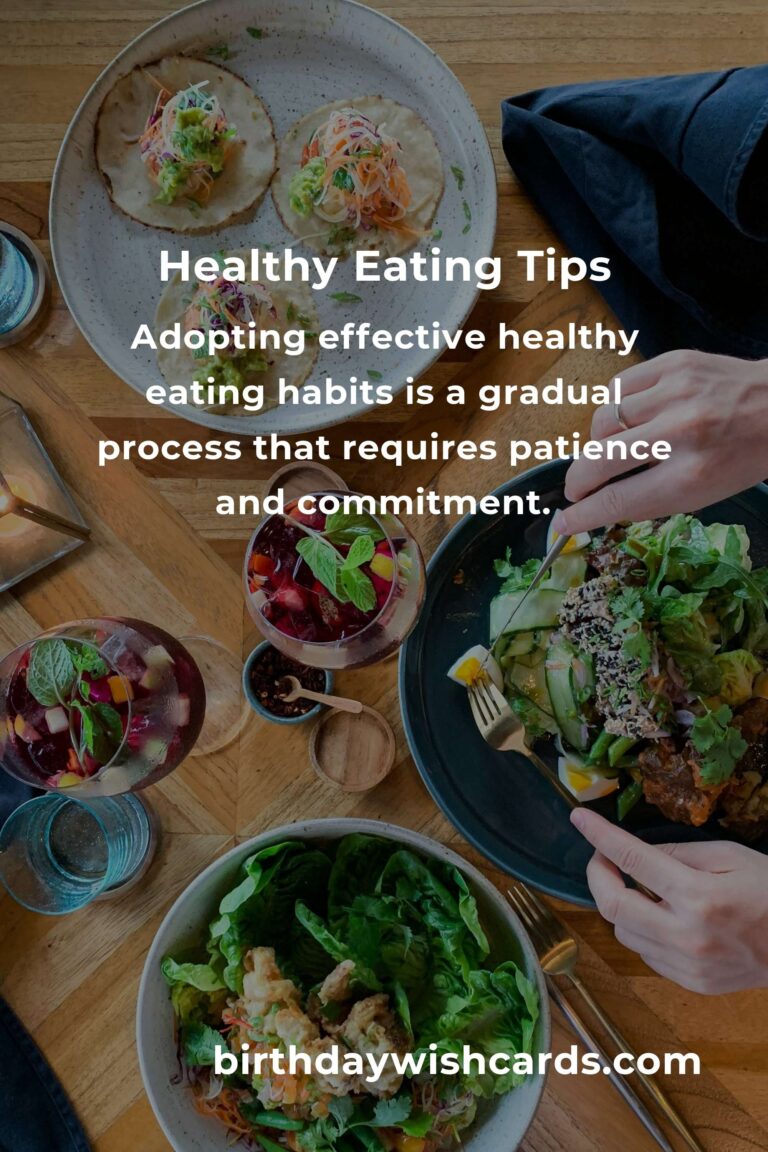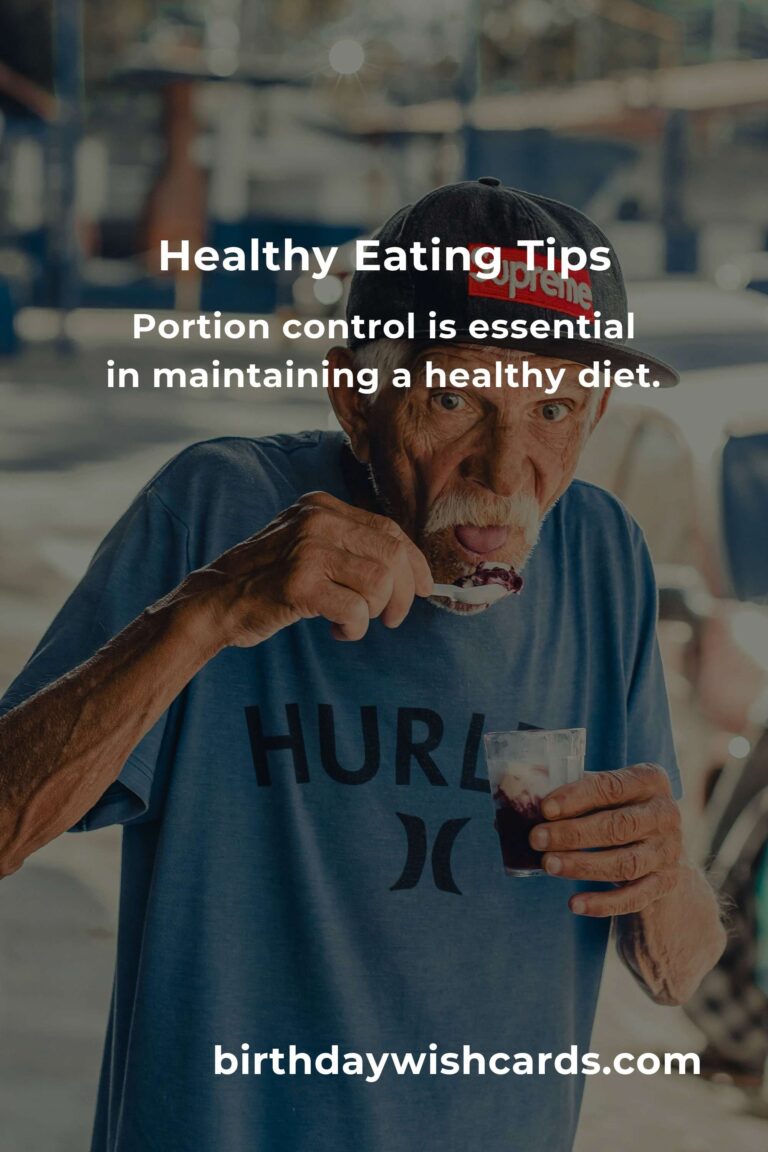
Healthy eating is a crucial component of maintaining your overall well-being. It not only helps in managing your weight but also reduces the risk of chronic diseases and promotes mental health. For beginners, adopting a healthy eating lifestyle can seem daunting, but with the right guidance, it can be a straightforward and rewarding journey.
Understanding the Basics of Healthy Eating
Healthy eating involves consuming a variety of foods that provide the nutrients your body needs to maintain energy levels, improve cognitive function, and support bodily functions. These nutrients include proteins, carbohydrates, fats, vitamins, minerals, and water.
Start with Balanced Meals
A balanced meal usually consists of a combination of macronutrients: proteins, carbohydrates, and fats. Proteins can be sourced from lean meats, dairy, beans, and nuts. Carbohydrates should come from whole grains, fruits, and vegetables, while healthy fats can be found in avocados, oils, and fatty fish.
Importance of Portion Control
Portion control is essential in maintaining a healthy diet. Eating large portions can lead to consuming more calories than necessary, which can contribute to weight gain. Use smaller plates, eat slowly, and listen to your body’s hunger cues to help manage portion sizes.
Stay Hydrated
Water is vital for your body to function properly. It aids in digestion, absorption of nutrients, and the regulation of body temperature. Aim to drink at least eight glasses of water a day, and more if you are active or in a hot climate.
Incorporate Whole Foods
Whole foods are unprocessed and unrefined, or processed and refined as little as possible before being consumed. They are usually rich in nutrients and fiber, which are beneficial for your health. Examples include fruits, vegetables, nuts, seeds, whole grains, and lean meats.
Limit Processed Foods and Sugars
Processed foods and added sugars are often high in calories and low in nutritional value. They can include sugary drinks, snacks, fast food, and pre-packaged meals. Limiting these can help prevent weight gain and reduce the risk of chronic diseases.
Plan Your Meals
Planning your meals in advance can help you make healthier choices and avoid the temptation of unhealthy options. It can also save time and money. Consider preparing a weekly meal plan and using a shopping list to buy only what you need.
Mindful Eating
Mindful eating involves paying full attention to the experience of eating and drinking, both inside and outside the body. It helps to recognize physical hunger and fullness cues and can prevent overeating. Practice eating slowly, savoring each bite, and avoiding distractions like TV or phones during meals.
Seek Professional Advice
If you’re unsure where to start or need personalized advice, consider consulting a nutritionist or dietitian. They can provide tailored guidance based on your specific needs and health goals.
Conclusion
Adopting effective healthy eating habits is a gradual process that requires patience and commitment. By understanding the basics, controlling portion sizes, staying hydrated, and choosing whole foods, beginners can embark on a journey to a healthier lifestyle. Remember, small changes can lead to significant improvements in your well-being over time.
Healthy eating is a crucial component of maintaining your overall well-being. A balanced meal usually consists of a combination of macronutrients: proteins, carbohydrates, and fats. Portion control is essential in maintaining a healthy diet. Water is vital for your body to function properly. Whole foods are unprocessed and unrefined, or processed and refined as little as possible before being consumed. Processed foods and added sugars are often high in calories and low in nutritional value. Planning your meals in advance can help you make healthier choices. Mindful eating involves paying full attention to the experience of eating and drinking. Adopting effective healthy eating habits is a gradual process that requires patience and commitment.
#HealthyEating #Nutrition #Wellness #BalancedDiet #MindfulEating













